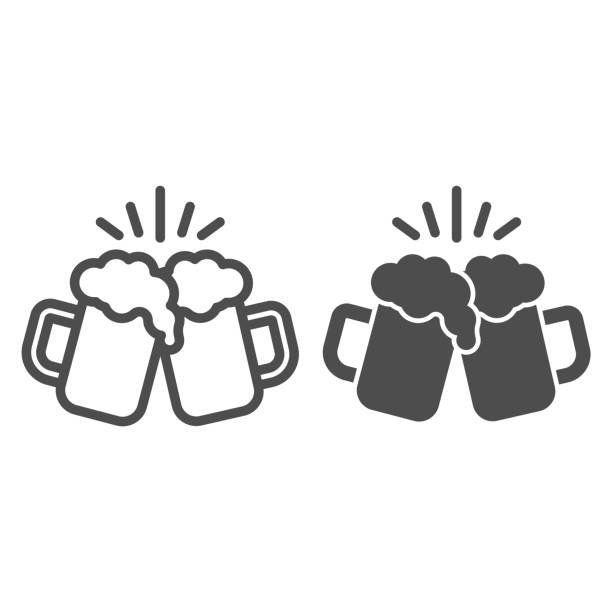Types of SETA Accreditations, List of 21 SETAs, Requirements and Examples in South Africa: SETAs (Sector Education and Training Authorities) are organizations in South Africa that are responsible for overseeing the development and implementation of education and training programs in specific economic sectors. They were established in 1998 as part of the South African government’s efforts to address skills shortages and promote economic growth and development.
The Functions and Objectives of SETAs
Each SETA is responsible for a specific economic sector and works with employers, labor organizations, educational institutions, and other stakeholders to develop and implement training programs that meet the needs of the sector. SETAs receive funding from the government and from a skills development levy paid by employers in the sector.
The key functions of SETAs include:
- Developing and implementing training programs that are aligned with the needs of the sector and the national qualifications framework.
- Promoting skills development and training within the sector, including identifying skills shortages and promoting career development.
- Providing grants and funding to support the development and delivery of training programs.
- Assessing the quality and effectiveness of training programs offered by institutions and providers within the sector.
- Registering and accrediting institutions and providers that offer education and training programs in the sector.
- Developing and promoting learnerships and apprenticeships that provide on-the-job training and work experience.
- Providing advice and guidance to employers and learners on skills development and training programs.
SETAs play an important role in promoting economic growth and development by ensuring that education and training programs meet the needs of specific economic sectors. By providing funding, training, and support to employers and learners, SETAs help to build a skilled and competent workforce that can drive innovation and growth in key sectors of the economy.
Different Types of SETAs Accreditations
In South Africa, there are different types of accreditation that SETAs can award to providers and institutions that offer training and education in their respective economic sectors. Here are some of the different types of SETA accreditation and examples of the economic sectors they cover:
- Full Accreditation: This accreditation is awarded to institutions that meet all the SETA’s accreditation criteria and have the capacity to deliver quality education and training programs in a particular sector. For example, AgriSETA accredits institutions that offer training and education in agriculture, forestry, and fisheries.
- Provisional Accreditation: This accreditation is awarded to institutions that do not yet meet all of the SETA’s accreditation criteria but are in the process of doing so. For example, the CHIETA offers provisional accreditation to providers who are in the process of aligning their training programs with the national qualifications framework (NQF).
- Programme Accreditation: This accreditation is awarded to specific training programs offered by accredited institutions that meet the SETA’s quality and standards requirements. For example, the ETDP SETA accredits individual training programs that meet the requirements for registered assessor training.
- Assessment Centre Accreditation: This accreditation is awarded to institutions that have the capacity to provide assessment services for specific qualifications and training programs. For example, the HWSETA accredits assessment centers that can provide assessment services for community health care worker training programs.
- Recognition of Prior Learning (RPL) Accreditation: This accreditation is awarded to institutions that can provide RPL services for specific qualifications and training programs. For example, the MERSETA accredits RPL service providers that can assess and recognize the skills and knowledge of workers in the manufacturing and engineering sectors.
These are just a few examples of the different types of SETA accreditation and the economic sectors they cover. Accreditation is an important process for ensuring the quality and relevance of education and training programs in South Africa and plays a key role in promoting economic growth and development.
21 SETAs in South Africa
There are 21 SETAs (Sector Education and Training Authorities) in South Africa, each responsible for the development and implementation of education and training programs for specific economic sectors. Here is a list of the SETAs in South Africa:
- Agriculture, Forestry and Fisheries SETA (AgriSETA)
- Banking Sector Education and Training Authority (BANKSETA)
- Chemical Industries Education and Training Authority (CHIETA)
- Construction Education and Training Authority (CETA)
- Culture, Arts, Tourism, Hospitality and Sport Education and Training Authority (CATHSSETA)
- Education, Training and Development Practices SETA (ETDP SETA)
- Energy and Water Sector Education and Training Authority (EWSETA)
- Fibre Processing and Manufacturing SETA (FP&M SETA)
- Finance and Accounting Services SETA (FASSET)
- Food and Beverages Manufacturing Industry SETA (FoodBev SETA)
- Health and Welfare SETA (HWSETA)
- Insurance Sector Education and Training Authority (INSETA)
- Local Government SETA (LGSETA)
- Media, Advertising, Information and Communication Technologies SETA (MICT SETA)
- Manufacturing, Engineering and Related Services SETA (MERSETA)
- Mining Qualifications Authority (MQA)
- Public Service Education and Training Authority (PSETA)
- Safety and Security Education and Training Authority (SASSETA)
- Services SETA (SSETA)
- Transport Education and Training Authority (TETA)
- Wholesale and Retail SETA (W&RSETA)
These are the 21 SETAs in South Africa, each responsible for providing education and training programs in their respective economic sectors.
SETA Accreditation Requirements
SETA accreditation is the process through which institutions and providers are assessed and evaluated for their capacity to offer quality education and training programs in a specific sector. Here are some of the general requirements for SETA accreditation:
- Legal Compliance: The institution or provider must be registered as a legal entity with the relevant regulatory authorities and must comply with all relevant laws and regulations related to education and training in South Africa.
- Governance and Management: The institution or provider must have sound governance and management structures and processes in place to ensure effective and efficient management of resources and operations.
- Training Program Quality: The institution or provider must offer high-quality training programs that are aligned with the relevant national qualifications framework (NQF) and meet the SETA’s quality and standards requirements.
- Learning Material Quality: The institution or provider must have appropriate and high-quality learning materials and resources in place to support the delivery of training programs.
- Assessment Quality: The institution or provider must have robust and reliable assessment processes in place to ensure that learners have achieved the required skills and knowledge.
- Resource Capacity: The institution or provider must have the appropriate resources and infrastructure in place to support the delivery of high-quality training programs, including qualified staff, equipment, and facilities.
- Financial Sustainability: The institution or provider must have sound financial management systems and processes in place to ensure long-term sustainability and viability.
These are some of the general requirements for SETA accreditation. The specific requirements may vary depending on the economic sector and the type of accreditation being sought. Accreditation is an important process for ensuring the quality and relevance of education and training programs in South Africa, and institutions and providers that meet the accreditation requirements can play a key role in promoting economic growth and development.





